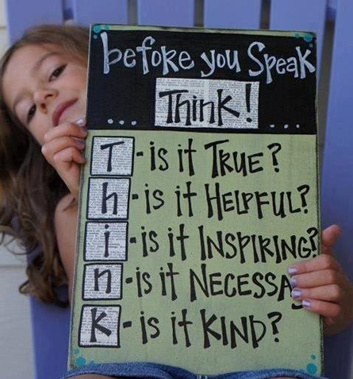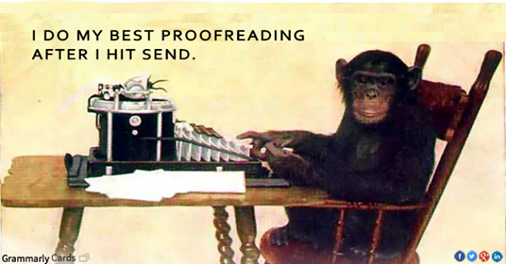Hi Debra - I was one of those people and I apologise if I put you off. No point in explaining but I’m not that creepy - only on Halloween :-
Yes you do
Thanks for the straight answer James. Point taken! Looks like you and Catharine are having a double pronged purge against me. Time to leave - straight answer please ?
It’s not all about you @anon88888878
Why do you throw your toys out of the pram as soon as anyone confronts you with what you refer to as a straight answer? Straight answer please.
Because of your and Catharine’s negativity.
feedback for you:
I find your comments very refreshing. do not think ive ever seen a comment you have wrote and said …
until now though.
The Admin on here have a bloody hard time trying to keep the peace and monitor it all. We are adults we should check ourselves (yes i need to do this more often too)
Feedback is always a gift Harry - so thanks! 
as I said ive always found you very refreshing in what ive read.
The photo is good too 
Not a new discussion of course. Way back in 2014 I wrote this:
A few days ago I was reminded that, long before Facebook and Twitter, indeed before the widespread use of email, I regularly chatted to my colleagues at Reuters “over the wires” and latterly on screen.
At first, 55 years ago, this involved what now seems a cumbersome and very slow procedure of sending a “service message” which popped up on a teleprinter on the other side of the world in a matter of minutes depending on how long a queue of items was in front of it. But by the time I retired, 17 years ago, it was instantaneous, from computer to computer, universally known as “screen topping” because that’s where the messages appeared.
The discussion we had – on Facebook, where else – swiftly turned to memories of messages we wished we’d never sent. Most frequent was the rude comment about the boss or a colleague that you had somehow managed to send to him rather than your friend across the room. And on one occasion an in-house message about a plumbing problem landed on every client’s screen worldwide because one letter in the address code had been mistyped!
But this isn’t about Reuters’ history or even about the history of communications. It’s about those messages you wish you’d never sent.
It’s about this:

And this:

A lot of footballers didn’t think before hitting send and the UK Football Association has made a lot of money out of their remarks on Twitter – £350,000 according to The Guardian http://www.theguardian.com/football/2014/oct/30/fa-fines-rio-ferdinand-twitter?CMP=EMCNEWEML6619I2
I’m not suggesting SFNshould fine you every time you press send without first rereading what you’ve typed and inadvertently offended someone or made a spelling mistake (I’m a typochondriac by profession, I’m afraid!). But you know it’s good practice. Yes, this is the age of instant this and instant that. We’re on the mobile non-stop telling friends such earth-shattering news as that we’re in Starbucks having a coffee or that, to quote Jennifer Saunders in a classic episode of AbFab, that you’re outside the office door and you’re about to come in.
It’s the same with texts, Tweets and comments on on-line forums (or should that be fora, the pedant in me asks!). We can’t take a minute to think about what we want to say and how to say it so it won’t cause offence. Most times it doesn’t matter. But on the odd occasion when you want to tell a friend that the boss is an effing idiot it pays to check who you’re sending it to. And if you’re irritated, it pays to think carefully about what you want to say, think carefully about how to say it, write it, reread it and then hit delete.
One of the problems of text messaging of all kinds is that irony, sarcasm, comedy, to give just three examples, all travel badly. There are things you can say to someone’s face that it’s impossible to say at a distance because they can’t see your face, hear your voice, get the tiny signals that show you’re joking. Which is why someone invented Smileys. But they don’t always work.
Tweets, Facebook statuses, comments on a thread when you’re in a rush or the dog’s just chewed up your best pair of shoes are easy to dash off. They’re short, to the point and fast. But how many times have you had second thoughts? Maybe I shouldn’t have said that or not in that way. Will the people who read it be annoyed, upset, angry even? Have I made a fool of myself? Tough – it’s too late. It’s gone and there’s nothing you can do about it.
So please, people, think first, type later. And if you’re angry, walk away and have a cup of tea and/or a glass of wine or whisky. When you get back things will be in perspective.
Problem, If it is true, It may not necessarily be kind?
Brilliant and insightful post as ever Terry - thank you! I was going to say something very similar but you have put it far better than I ever could (and saved me doing it to boot!) so thank you - enormously. Xx
Yes, John. Unless it’s vital that the truth be told, it’s kinder to say nothing.
No problem, Cat. I merely dug it out of my SF archive.
Your last paragraph is interesting, Mat. I recently refrained from posting on this subject as it would have contained an inconvenient truth & would have provoked (I imagine) some quite critical replies!
Sometimes it is best to keep quiet & let others continue in blissful ignorance & benefit from the sale at auction of confiscated UK reg cars such as a 2006 Maserati (made 2900 euros) . Before anyone gets all excited these auctions are reserved for registered professionals only.
I am sure both you and Terry are correct, but doesn’t keeping quiet, although it seems the modern way. lead to misleading information on screen that someone will copy and then it becomes “the rule”. Whereas nipping incorrect information in the bud so to speak prevents that?
What I am saying applies to the more technical issue rather than the general chat type of conversation.
I agree completely, John, & I have been trying to give nothing but factual information backed up with quotes from official government web sites for years. But there will always be someone else who thinks that their anecdotal knowledge trumps the french government!
I find this very frustrating particularly when my knowledge in my particular field is called in to question. There are others who also want to shoot the messenger when confronted with facts that go against commonly held beliefs, particularly when the facts are “inconvenient”.
Sometimes though changes do suddenly occur & can catch me out so I would be daft not to check when someone questions the advice given!
John/Mark – I’m not suggesting in any way that you shouldn’t give people the facts. As I said, you don’t have to tell the truth “unless it’s vital”. Make that important, necessary, when not to speak out could make things worse for the person seeking advice. But what I’m also saying is that people need to think about the way they’re saying things. Is it likely to read like you’re lecturing someone, putting someone else down, inferring “you’re an idiot”. If it is, then rephrase it. And if someone doesn’t agree, then so be it. Let it go. You’ve done your best.
Well put Terry, as was your original post, we are not all skilled at replying and things can and often do get misunderstood online. I see the other part of the equation as being able to describe the issue properly of the outset. Too frequently things commence badly, I went through a phase of only replying after the OP had written 3 replies, that was when all the evidence was laid out.